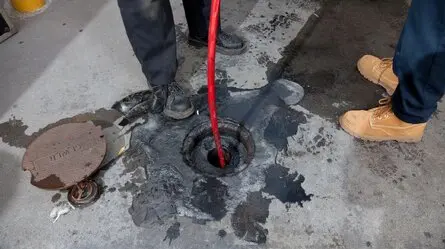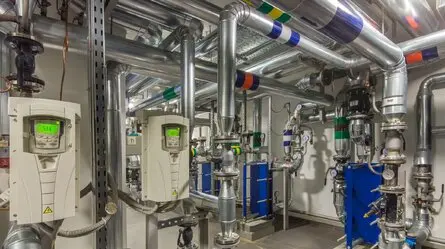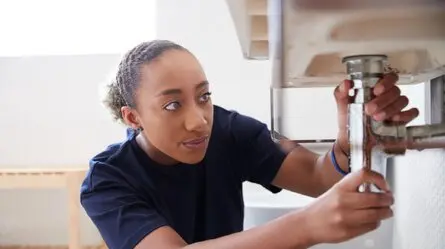Thinking about becoming a professional plumber in Australia? One of the earliest choices you’ll face is deciding between residential, commercial, or industrial sectors. Each path has its own daily tasks, work settings, and skill requirements. Grasping these differences will guide aspiring plumbers in picking the right career path.
This guide offers an overview of residential, commercial, and industrial plumbing careers, covering everything from typical projects to training requirements. If you’re ready to dive into a plumbing career, keep reading!
Residential Plumbing
Residential plumbing involves working in people’s homes and apartments to install, maintain and repair the water supply and drainage systems.
The day-to-day work consists of various tasks like installing and repairing pipes, fixtures, appliances, taps, toilets, etc. Plumbers also unblock drains and sewer lines, locate and fix leaks, repair gas lines, service hot water systems, and handle bathroom renovations. Other residential projects include stormwater drainage work, swimming pool plumbing, and general maintenance for optimal performance.
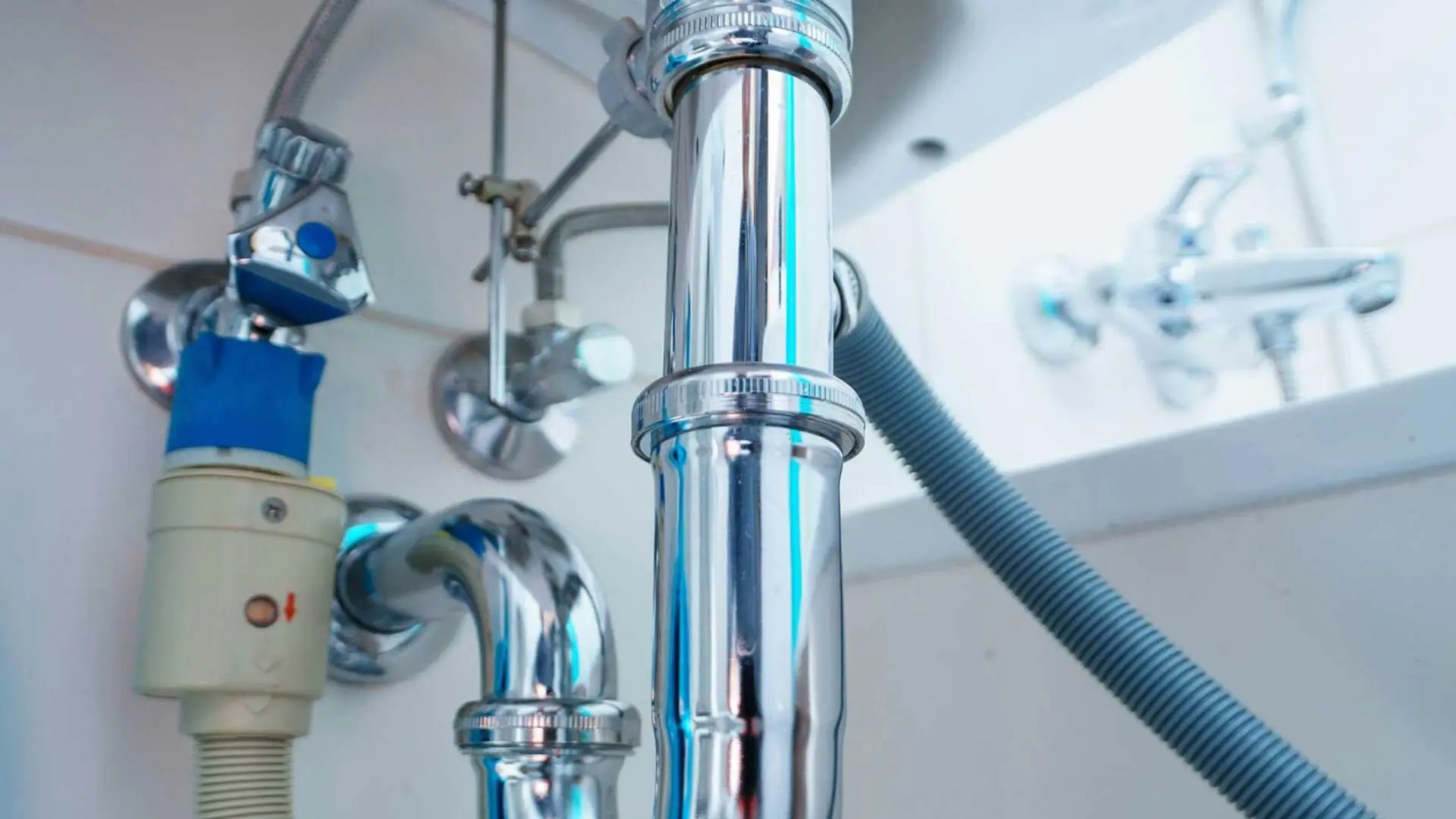
In residential plumbing, you’ll find yourself travelling to clients’ homes, mostly in the suburbs. These sites are smaller compared to commercial projects. Plumbers often work in tight spots, like under sinks and in cupboards, interacting directly with homeowners.
The required training includes completing a Certificate III in Plumbing through an apprenticeship or TAFE course. Residential plumbers must obtain a plumbing licence in their state or territory and undergo ongoing training in new products, technologies, and regulations.
Key skills for residential plumbers involve customer service, given their direct work with homeowners. Strong problem-solving helps identify and fix issues. Manual dexterity is essential for working in confined spaces, while physical fitness is necessary for efficiently handling heavy tools. Effective time management is important for juggling multiple jobs.
Some pros of residential plumbing include various home projects, flexible schedules, and directly helping people in the local community. Plumbers can also choose to start their own small business. Cons can include a lower pay ceiling compared to commercial and industrial work, the need to provide their own transport, and working in cramped spaces. Homeowner mistakes can also create pressure.
Commercial Plumbing
Commercial plumbers work on large-scale projects in public and business settings like malls, hotels, schools, hospitals, etc.
Their day-to-day work involves installation, repairs, and maintenance in sizeable buildings, often on complex pipe systems, valves, pumps, and other equipment. Drainage and venting systems for large properties fall under commercial plumbing, fire sprinklers, backflow prevention, and kitchen plumbing. Planning and project management are also involved in sizable jobs.
The work environment encompasses construction sites for new commercial builds and large renovations. Plumbers also provide ongoing maintenance for existing buildings. There is collaboration with other tradespeople and builders and tight deadlines on most projects. Paperwork and processes are required to ensure compliance.
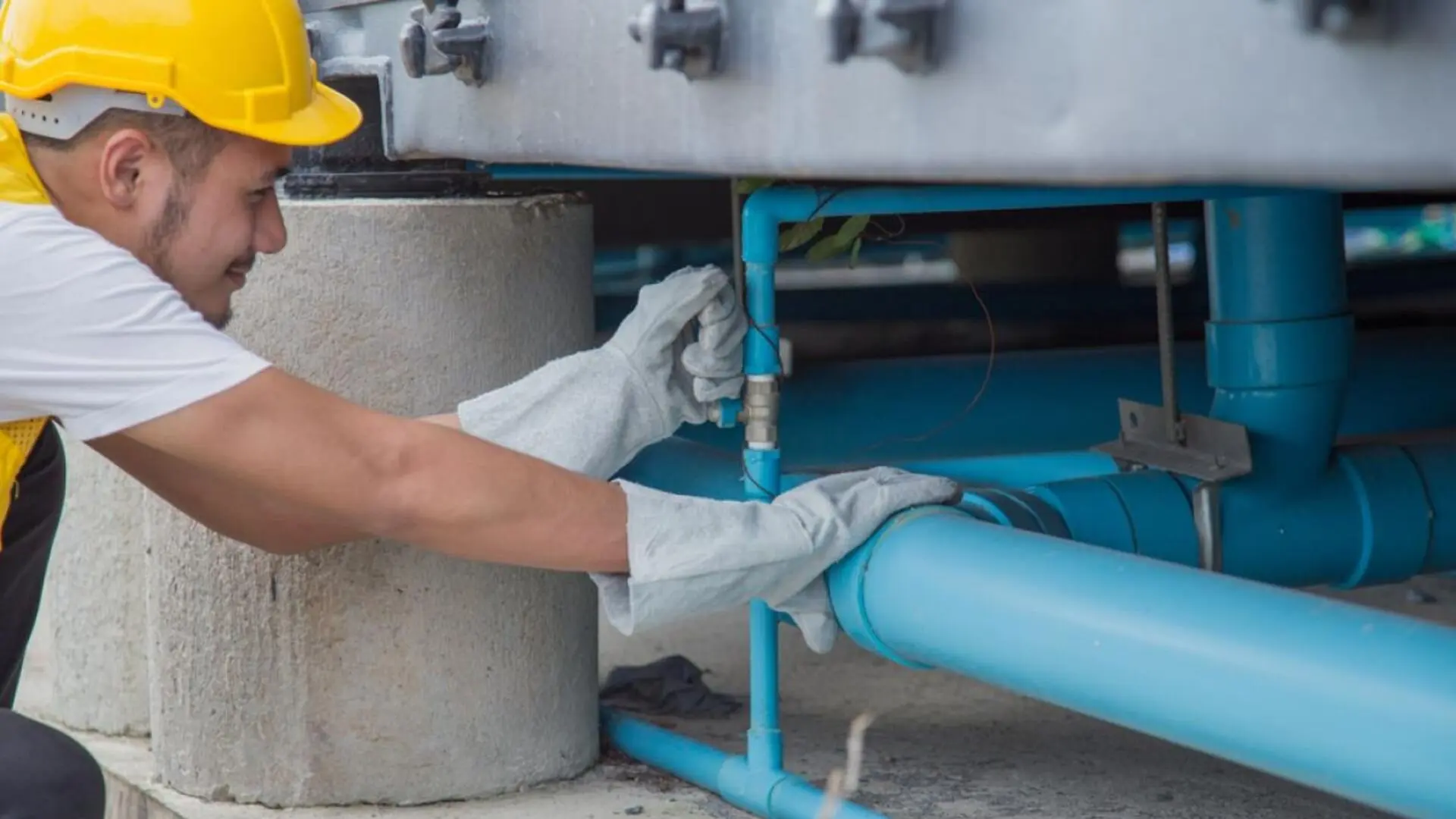
Training requirements include a Certificate III or IV in Plumbing and being licensed as a commercial plumber in the relevant state or territory. An excellent understanding of regulations like the Building Code of Australia is crucial. A builder’s licence can also enable plumbers to manage worksites themselves.
Key skills for commercial plumbers include strong time management and efficiency, collaboration and communication skills to work alongside other trades, understanding diagrams, plans and specifications, and planning and project management capabilities.
Some pros of commercial plumbing include higher earning potential than residential plumbers and working on exciting large-scale projects. Plumbers can utilise complex skills and specialise in areas like medical gas or design. Cons can be physically demanding worksites, noisy environments, tight deadlines that incur penalties, and generally slower-paced work compared to residential.
Industrial Plumbing
Industrial plumbers install, maintain and repair large and complex pipe systems and equipment in factories, plants, mines and other industrial facilities.
Their day-to-day work involves installing and maintaining extensive pipe infrastructure, working with steam systems, chemical transportation lines, and industrial machinery and equipment. Fabricating and fitting specialised parts is also common. Maintaining drainage and sewer systems safely and ensuring total health and safety compliance is crucial.
The work environment includes factories, oil refineries, chemical plants, mines and other hazardous industrial sites. Plumbers often work at extreme heights on building frames and infrastructure. Sites have many risks requiring protective equipment and procedures. The focus is primarily on new installations rather than repair work. A fly-in, fly-out roster is also standard.

Training requirements are a Certificate III in Plumbing or Mechanical Services and licensing as an industrial plumber. Compliance training for high-risk worksites is mandatory. First aid certification and confined space training are ideal, too.
Vital skills include reading complex schematics, plans and diagrams. Manual dexterity allows for conducting precision work. Excellent problem-solving skills are needed for intricate systems and equipment. Being comfortable working at heights is essential. A strong safety-first focus is paramount.
The pros of industrial plumbing include exciting, cutting-edge projects and technology. Plumbers get to utilise niche, high-level skills. There is also potential for travel to interesting sites. Cons can be remote locations, FIFO schedules, extremely demanding physical conditions, and rigid safety protocols. High-pressure environments are also common.
Getting Started in Each Sector
The first step, regardless of sector, is completing plumbing qualifications like a Certificate III apprenticeship. From there, gain broad industry experience, get licensed in your state/territory, and continue developing skills. Consider any specialised training to open more career doors—target jobs at companies in your preferred sector to start gaining specific expertise. Pick the pathway that suits your skills, interests and preferences regarding work environments, satisfaction, and lifestyle.
Carefully consider which sector aligns best with your professional and lifestyle goals. Reach out to companies in your chosen area to learn more. With dedication, you can build an exciting plumbing career in residential, commercial or industrial.
Pick Your Plumbing Path and Get Started
This overview of residential, commercial and industrial plumbing careers provides critical insights into the differences across these vital sectors. Once you understand the typical projects, work environments, required skills and training, you can decide which pathway to pursue.
The Woolf Plumbing & Gas team has years of experience in residential, commercial, and industrial plumbing services. Contact us today to learn more about exciting career opportunities and apprenticeships. With the proper guidance, you can gain the skills and experience to thrive in your ideal plumbing career.
FAQs - Working As A Plumber In Australia
Do I need to complete formal training and get licensed to become a professional plumber in Australia?
You must complete a Certificate III plumbing qualification and be licensed as a plumber to work legally and safely in your state or territory.
Is plumbing a physically demanding career?
Yes, plumbing requires physical fitness. You are on your feet all day, lifting heavy materials and tools and working in tiring positions like crouching under sinks. Good health and stamina are essential.
How long does it take to get fully qualified as a plumber?
A Certificate III apprenticeship usually requires 3-4 years of full-time study and work experience. Working as a licensed plumber before being fully qualified would be best.
Do plumbers need knowledge of building regulations and standards?
To ensure legal and compliant installations, plumbers must understand plumbing regulations, building codes, and Australian standards.
What is the main difference between residential and commercial plumbers?
Residential plumbers work on homes and apartments, doing repairs and renovations, while commercial plumbers work on larger projects for businesses, hotels, hospitals, etc.


